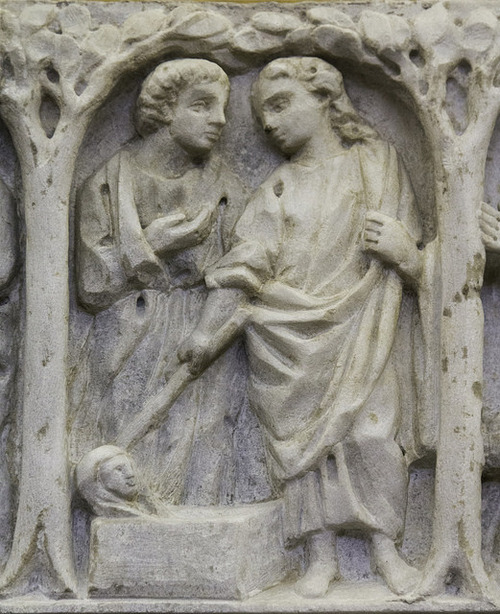HOMILY for 14th Tue per annum (II)
Hos 2:16-18. 21-22; Ps 144; Matt 9:18-26

A ruler, that is, a leader of the local community, one who is in the elite core comes to Jesus. Another who is at the very margins of the community, ostracized by society because she suffered the flow of blood, haemorrhaging for the past 12 years, comes to Jesus. One a man, another a woman. Both come to Jesus for help, and they represent all of humanity, both the powerful and the dispossessed, male and female, young and old. For they come to Jesus bearing the conditions that are common to us all: our mortality. The woman comes to Jesus suffering from a debilitating illness; the man comes to Jesus on behalf of his child who has suffered the last and greatest illness that afflicts Mankind, death itself.
And often it is sickness and death that challenges and tests our faith, isn’t it? So, these people in the Gospel represent us who are prone to the suffering that they have, who sorrow and grieve even as the father does for his dead daughter. What are we to do when we endure these mortal pains? We’re encouraged to go to Jesus.
And this takes courage; faith requires courage, hence Jesus says to the woman, “Take heart” or in other translations, simply “Courage!”. The same Greek word, in fact, is used later on in St Matthew’s Gospel when there is a storm at sea and the apostles cry out in fear. Jesus appears to them, walking on the sea in the midst of the storm, and he says: “Take heart, courage, it is I; have no fear” (Mt 14:27). The storms of the human life are its trials and sufferings: illness, grief, death. These stir us up. But God is Lord of the storms, he is able to reach out in the midst of them, and he comes to us, calling out to us to go to him in faith and hope. And this takes courage.
The woman who is not allowed to come into the city had to overcome her fear of social conventions and customs, of public disapproval and even violence if she was caught, to approach Jesus. And even so, she reaches out to just touch the tassels of his garment from behind, not daring to be seen by others. But this is enough. She has done a very brave thing, risking further social exclusion and harm just to touch his garment. And the man who had rushed out to find Jesus when his daughter had died – he must have risked humiliation. For if the crowd laughed at Jesus, they would also have ridiculed the father of the dead girl. So, he too has done a brave thing, risking reputation and public esteem to go to Christ.
They go – perhaps because they’re desperate, but hope often springs from such conditions – and they go nevertheless because they have faith. And faith takes courage. Because with courage, the man and woman in the Gospel are able to manage their fears and so go to Jesus and ask for what they need: health, well-being; salus in Latin, which becomes also salvation.
Their faith and their courage thus gains for them salus – not just physical health and healing from Christ, but above all, salvation, eternal life in God. And this is promised us too if we keep faith with Christ. So, “Courage! Take heart!”, Jesus says to us too. As a cancer patient I read about said so pithily: “Those who go to Jesus Christ find in him a cure for death”.
thekidinme101 liked this
lawrenceop posted this